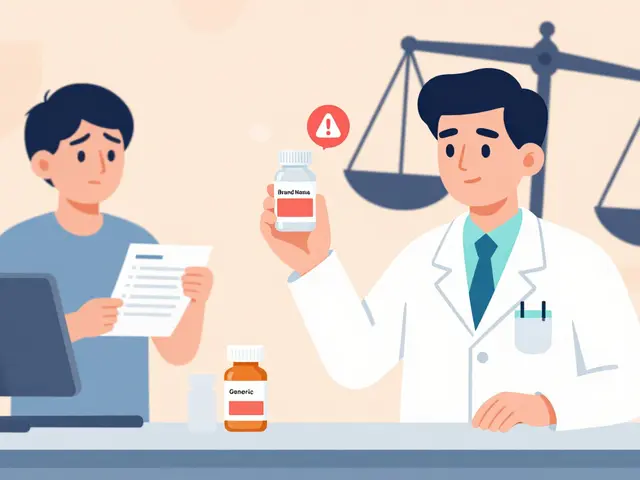Warfarin Prescription: What You Need to Know
Warfarin is a blood‑thinner that doctors use to stop clots from forming or growing. If you’ve been told to take it, you probably have a condition like atrial fibrillation, a deep‑vein clot, or a heart valve replacement. The drug works by slowing down how your blood clots, but that also means you have to keep a close eye on it.
How Dosing Is Determined
When you first start warfarin, the doctor won’t give you a one‑size‑fits‑all dose. They’ll usually begin with a low amount—often 2 to 5 mg a day—and then adjust based on your INR (International Normalized Ratio) blood test. The INR tells you how long it takes your blood to clot. Most patients aim for an INR between 2.0 and 3.0, but some conditions need a tighter range.
After the first test, usually done a few days after starting, the doctor may increase or decrease the dose. It can take a few weeks to find the sweet spot, so expect several blood tests early on. Once your INR stays steady in the target range, you might only need to check it every month.
Monitoring and Lifestyle Tips
Regular INR checks are the backbone of safe warfarin use. If your INR is too low, you’re at risk for clots; too high, and bleeding becomes a problem. Keep a log of your results and bring it to every appointment.
Food matters too. Vitamin K—found in leafy greens like kale, spinach, and broccoli—can tip the INR low. You don’t have to avoid these foods, but try to eat a similar amount each day so your doctor can adjust the dose accordingly.
Lots of over‑the‑counter meds and herbal supplements interfere with warfarin. Common culprits include NSAIDs (like ibuprofen), aspirin, and even some cold remedies. Always ask your pharmacist or doctor before adding a new product.
Stay hydrated, limit alcohol, and watch for signs of bleeding: unusual bruises, bright‑red or black stools, and coughing up blood. If any of these show up, call your doctor right away.
Traveling? Pack enough warfarin for the whole trip, bring a copy of your prescription, and know where the nearest lab is for INR testing. Some patients use a portable INR monitor, which can make things easier on the road.
Missing a dose? Take it as soon as you remember, unless it’s almost time for the next one. Don’t double up—just continue with your regular schedule.
In short, warfarin works well when you stick to the monitoring plan, keep your diet steady, and stay alert to drug interactions. Talk openly with your healthcare team, ask questions, and keep your records organized. With these habits, you’ll maximize the benefits of warfarin while keeping the risks low.

Buy Generic Coumadin (Warfarin) Online Cheap in NZ: Safe Prices, Risks, and 2025 Buying Guide
Want cheap generic Coumadin (warfarin) online in NZ? See safe ways to buy, 2025 price ranges, legal rules, risks, and smarter options to cut costs without risking your INR.
View More




